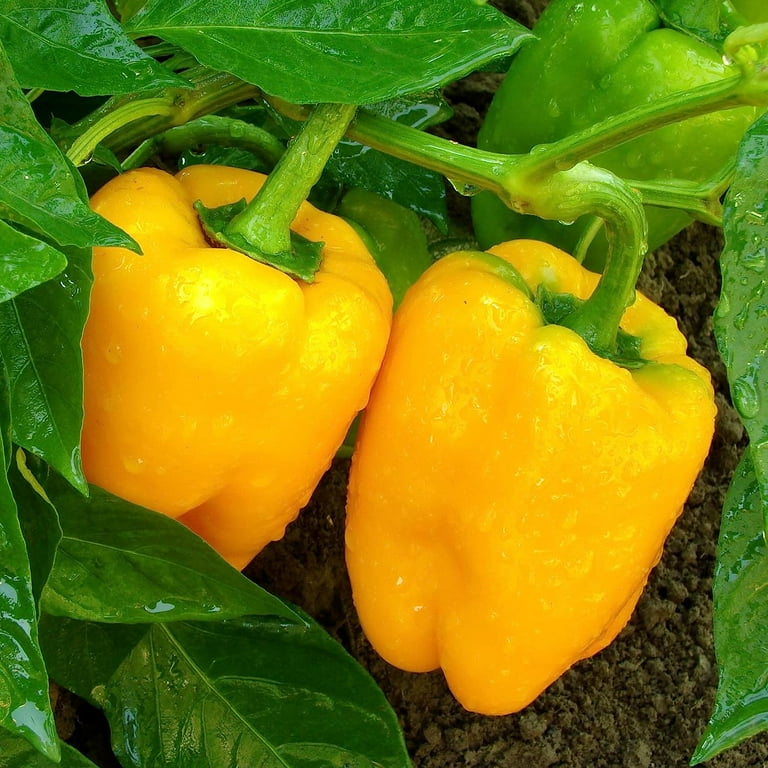Best Fertilizers for Peppers: Make Best Use Of Plant Health and Yield
Best Fertilizers for Peppers: Make Best Use Of Plant Health and Yield
Blog Article
Organic Vs. Synthetic Fertilizers: Which Is Best for Nurturing Healthy And Balanced Pepper Plants?
In the world of supporting healthy pepper plants, the choice between organic and artificial plant foods stands as an essential choice with significant ramifications. While both alternatives goal to supply necessary nutrients to support plant growth, the subtleties of their effect on the soil, plant health, and the environment trigger a debate that mirrors throughout the horticulture area. Comprehending the unique advantages and possible mistakes of each plant food type is essential for pepper growers looking for to enhance their yields while preserving a sustainable and eco-conscious method.
Advantages of Organic Fertilizers
Organic plant foods provide an environmentally-friendly and sustainable strategy to nourishing pepper plants, providing necessary nutrients without making use of artificial chemicals. These natural plant foods are derived from natural resources such as compost, manure, bone dish, and seaweed, advertising soil wellness and biodiversity. Unlike synthetic plant foods, organic choices launch nutrients slowly, guaranteeing a consistent and well balanced supply for pepper plants to grow.
One substantial advantage of organic plant foods is their capacity to improve soil framework and water retention. By enhancing soil wellness, organic fertilizers advertise advantageous microbial task, which assists in nutrient uptake by pepper plants. Additionally, organic plant foods reduce the danger of chemical run-off, shielding water sources from air pollution and safeguarding the atmosphere.
In addition, organic fertilizers add to lasting soil fertility by advertising the development of valuable dirt microorganisms. These microorganisms aid break down raw material, launching nutrients in a type that is quickly available to pepper plants. best fertilizers for peppers. By cultivating a healthy and balanced dirt ecosystem, organic fertilizers sustain lasting pepper growing techniques that profit both plants and the setting
Downsides of Artificial Plant Foods
Artificial fertilizers, in contrast to their organic counterparts, position numerous negative aspects when used to nourish pepper plants, impacting both plant health and environmental sustainability. One major downside of artificial plant foods is their propensity to leach nutrients from the soil rapidly. This rapid leaching can result in nutrition discrepancies in the soil, triggering plants to experience from deficiencies or toxicities. Furthermore, synthetic fertilizers can hurt useful soil organisms, such as earthworms and advantageous bacteria, disrupting the dirt ecological community's balance.
In addition, the overuse of artificial fertilizers can add to water contamination. Excess plant foods not taken in by plants can wash away right into water bodies, causing eutrophication, where algae flowers diminish oxygen degrees in the water, hurting aquatic life. Artificial fertilizers are normally derived from non-renewable sources, such as fossil gas, contributing to carbon exhausts and environmental destruction during their manufacturing.
Nutrient Absorption Comparison
When contrasting organic and artificial fertilizers in terms see this here of nutrient absorption, natural plant foods have the benefit of providing a much more balanced and slow-release resource of nutrients. Organic fertilizers include a range of macro and micronutrients that are not only valuable for the plants however likewise promote healthy and balanced dirt microbial activity, which aids in nutrient uptake.
Moreover, natural plant foods enhance soil framework and water retention ability, permitting pepper plants to access nutrients more efficiently. This improved soil quality assists in origin advancement, making it possible for far better nutrient absorption. Synthetic fertilizers, although at first boosting plant development as a result of their high nutrient concentrations, may hinder long-term nutrient absorption by derogatory dirt health and wellness gradually.
Environmental Influence Factors To Consider

On the various other hand, artificial fertilizers, although often even more instantly readily available and focused to plants, can have harmful effects on the environment otherwise applied properly (best fertilizers for peppers). Their manufacturing requires high power inputs, resulting in greenhouse gas exhausts and adding to environment modification. Furthermore, the runoff of excess artificial fertilizers can infect water resources, causing eutrophication and hurting marine environments.
Finest Plant Food Practices for Peppers
When fertilizing pepper plants, enhancing nutrient uptake and decreasing ecological impact are crucial factors to consider. To attain this, it is important to comply with ideal plant food techniques tailored to the specific requirements of pepper plants. One critical technique site is to perform a soil test before applying any type of plant foods. This examination can determine the pH level of the soil and identify any type of nutrient deficiencies, directing you in choosing the most appropriate plant food formula.
One more essential method is to fertilize pepper plants at the ideal time. Normally, peppers gain from receiving fertilizer at growing and after that once again when they begin to flower. Over-fertilizing can cause nutrient discrepancies and harm the plants, so it is vital to follow advised application prices.
Furthermore, choosing a well balanced fertilizer with an NPK ratio that matches pepper plants' demands is fundamental. Organic plant foods, such as garden compost or manure, can be outstanding choices as they launch nutrients slowly and improve dirt structure over time. Artificial plant foods can provide a fast nutrient increase when needed. Inevitably, integrating synthetic and natural fertilizers judiciously can assist nurture healthy and balanced pepper plants while lessening environmental influence.
Final Thought

Organic plant foods offer a lasting and environmentally-friendly approach to nourishing pepper plants, giving important nutrients without the use of artificial chemicals. Unlike artificial fertilizers, organic alternatives launch nutrients slowly, guaranteeing a balanced and stable supply for pepper plants to look at this now prosper.
Artificial fertilizers, in contrast to their organic counterparts, pose various downsides when made use of to nurture pepper plants, impacting both plant health and wellness and ecological sustainability. When contrasting natural and artificial fertilizers in terms of nutrient absorption, organic fertilizers have the advantage of supplying an extra well balanced and slow-release resource of nutrients.Furthermore, organic plant foods boost soil structure and water retention capacity, allowing pepper plants to gain access to nutrients much more effectively.
Report this page